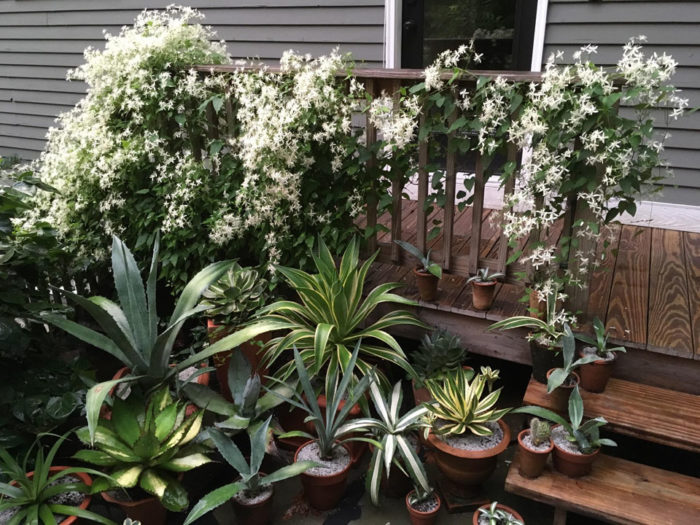
Some tender perennials and tropicals can be saved at the end of the season—but which ones deserve a second life?
So let’s just be honest: Steve and Danielle don’t overwinter a lot of plants. Since they are, admittedly, two of the lazy gardeners on the planet, the prospect of digging, hauling, and storing plants from one year to the next is not their idea of fun. But certain pricier tropicals and a few choice annuals are definitely worth the extra effort. Find out which plants make the cut, and learn some tips and tricks to make overwintering easier in this latest episode.
Expert testimony: Irvin Etienne, the horticultural display coordinator for the Garden at Newfields in Indianapolis.
Some plants discussed in this episode
Much to her husband’s dismay, Danielle moves her beloved collection of agaves inside to sunny locations each winter. Some of the cultivars that stab and maim them in the process are ‘Quadricolor’ (Agave lophantha ‘Quadricolor’, Zones 8–10) and ‘Mediopicta Alba’ (Agave americana ‘Mediopicta Alba’, Zones 8–10).
Steve and Danielle both agree that red-leaved banana (Ensete ventricosum ‘Maurelii’, Zones 10–11) is worth overwintering because it goes dormant and can easily be kept in a basement or dark location. However, it will need protection from mice, who like to snack on its remnants if given the opportunity.
One of the easiest of all tropicals to overwinter is canna, so Steve will always drag his pots of tubers inside an unheated garage. One of his favorite varieties is ‘Pretoria’ canna (Canna ‘Pretoria’, Zones 7–11) for its lovely, tiger-striped leaves.
Expert Irvin Etienne is the opposite of Steve and Danielle: He happily overwinters dozens upon dozens of tropicals and tender perennials each season, including an array of elephant ears (Colocasia spp. and cvs., Zones 7–10). Over the years, he has developed a number of time-saving tricks to get the job done with ease.
Read more about overwintering in issue 184 of Fine Gardening magazine.

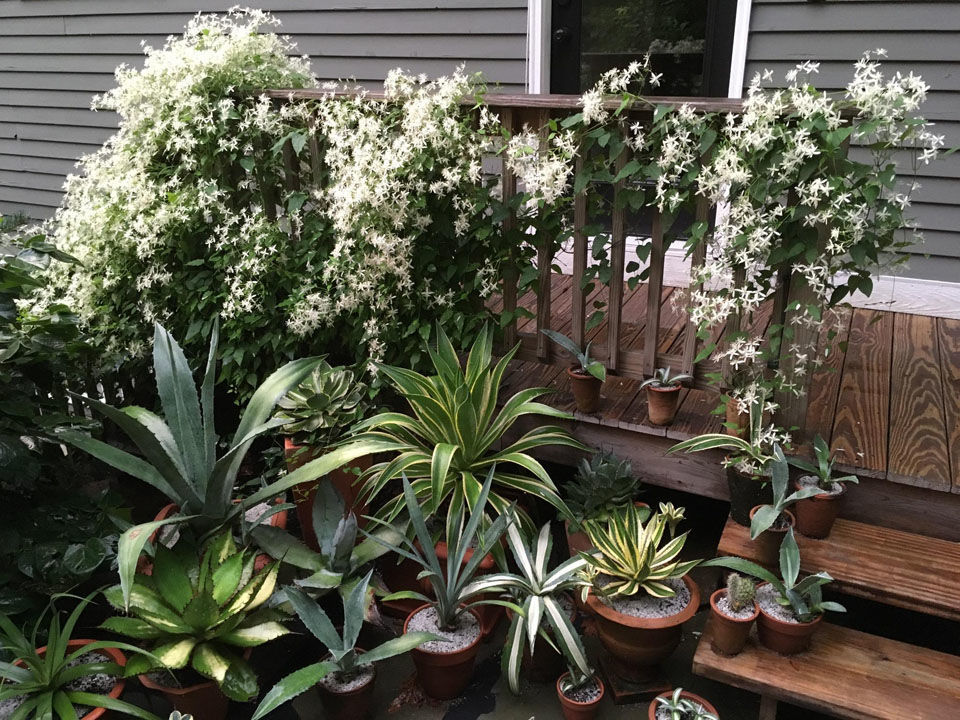
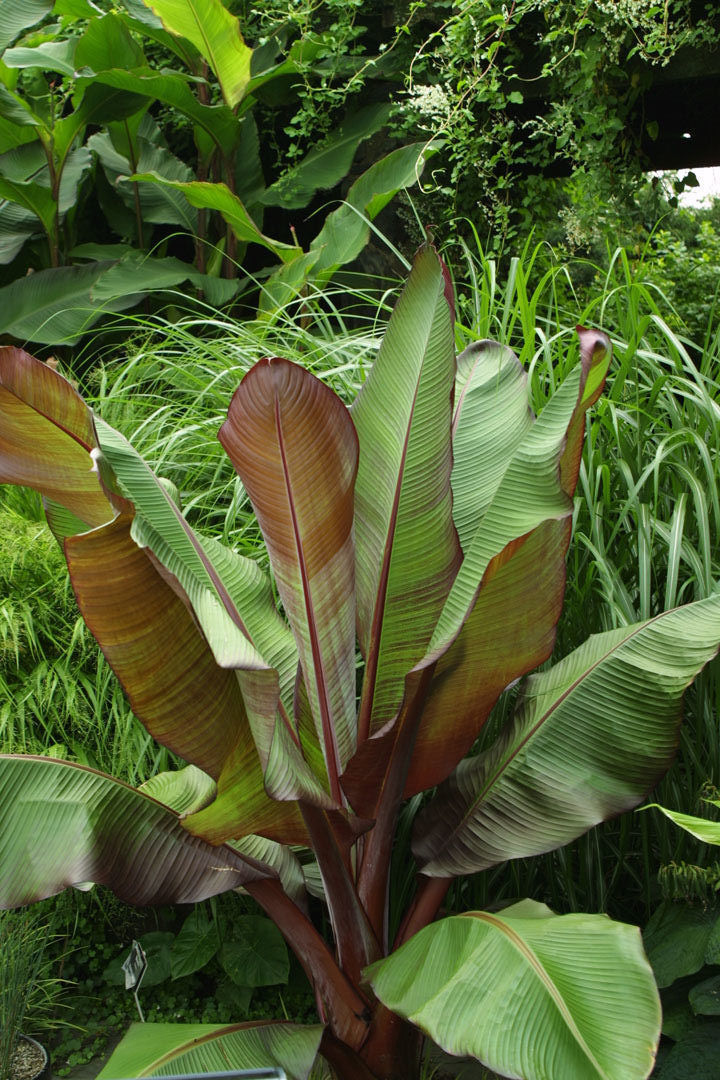
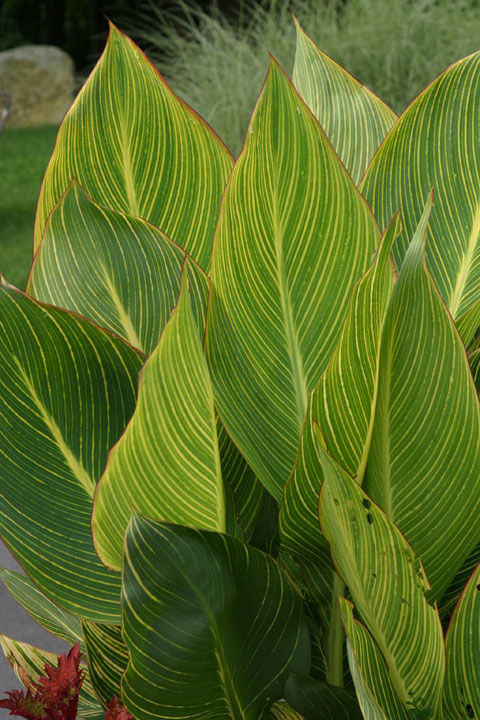
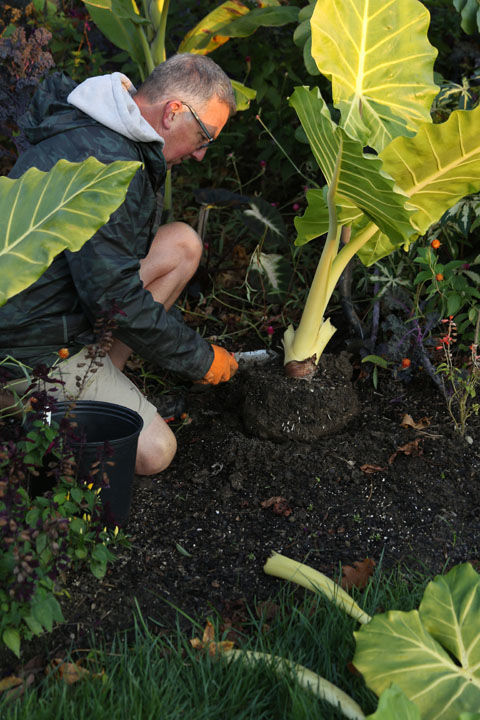
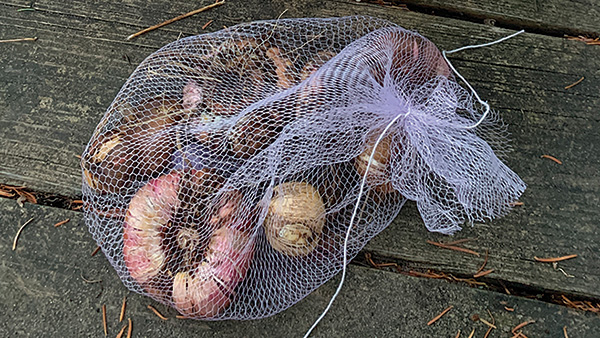




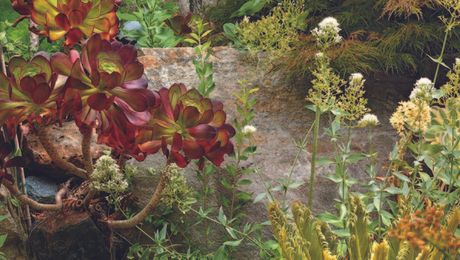
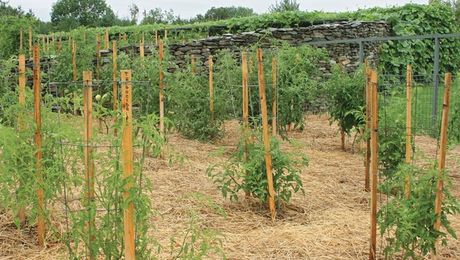









Comments
Log in or create an account to post a comment.
Sign up Log in